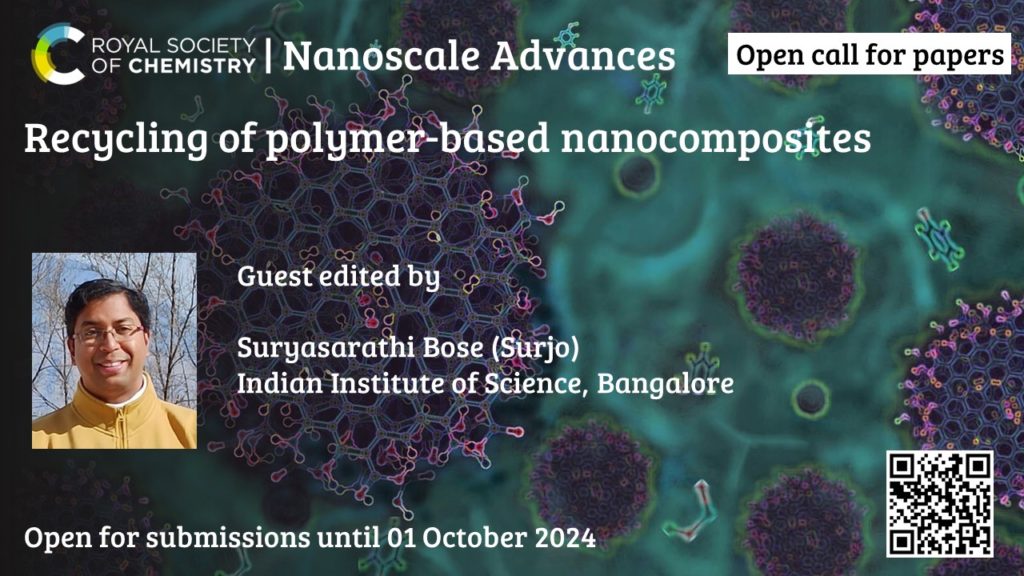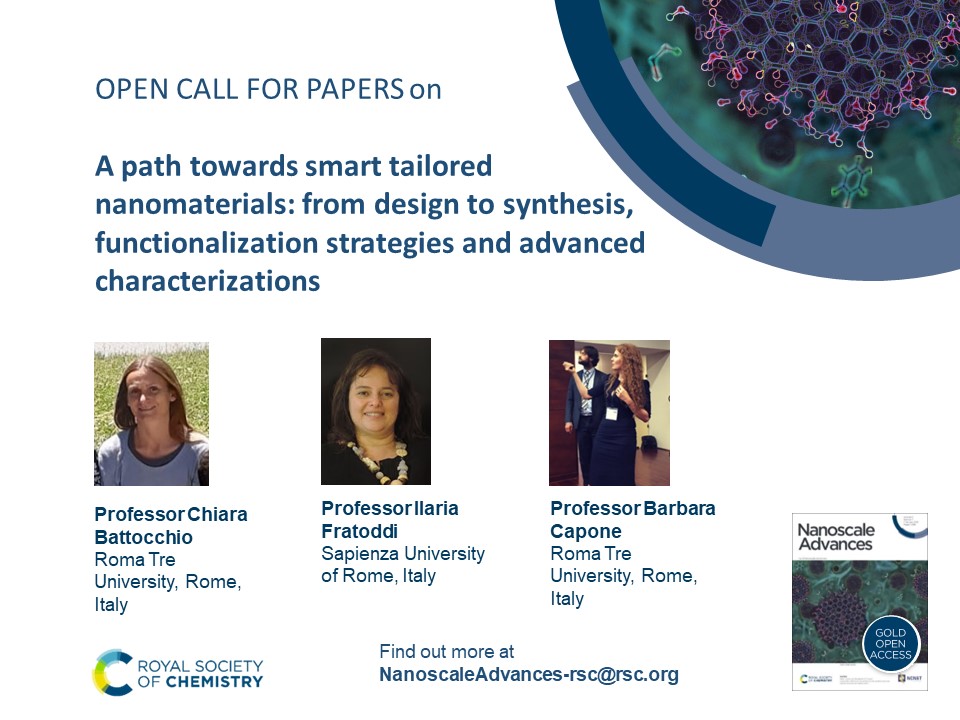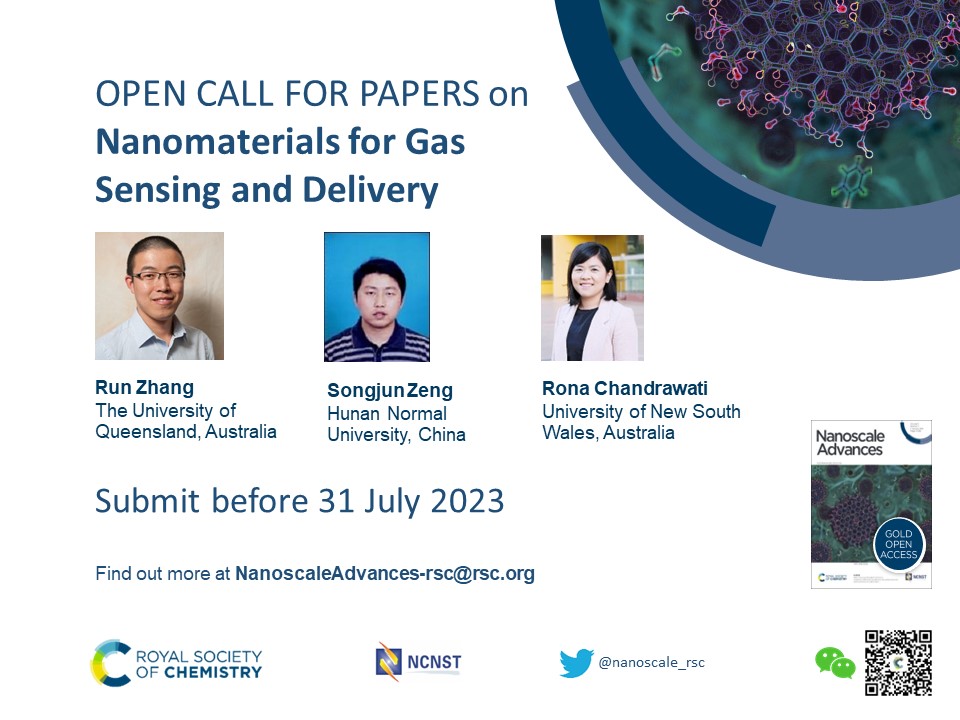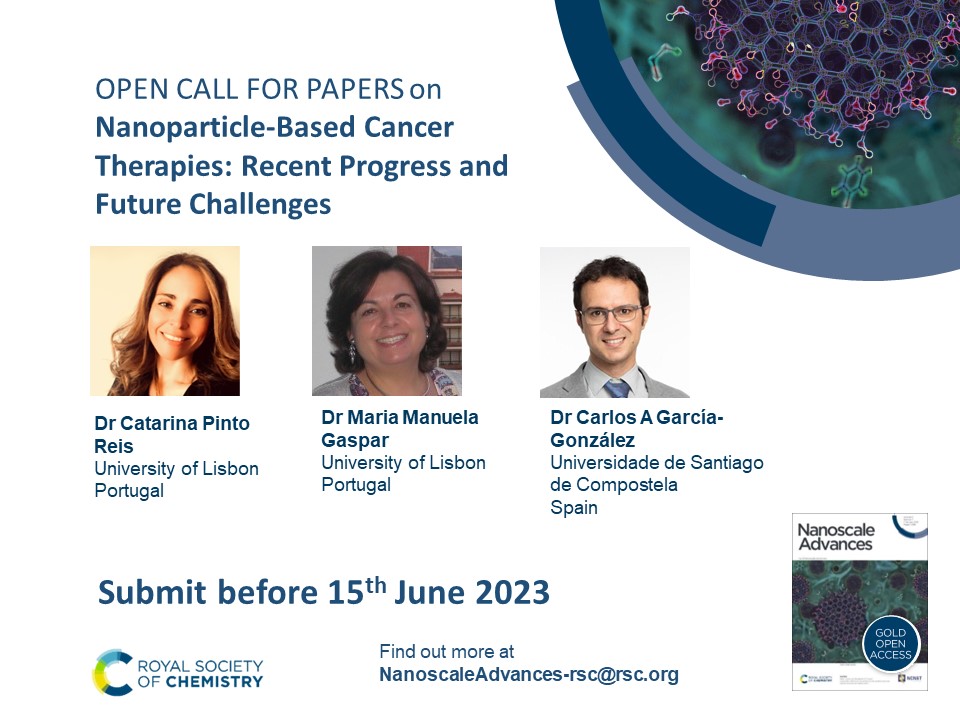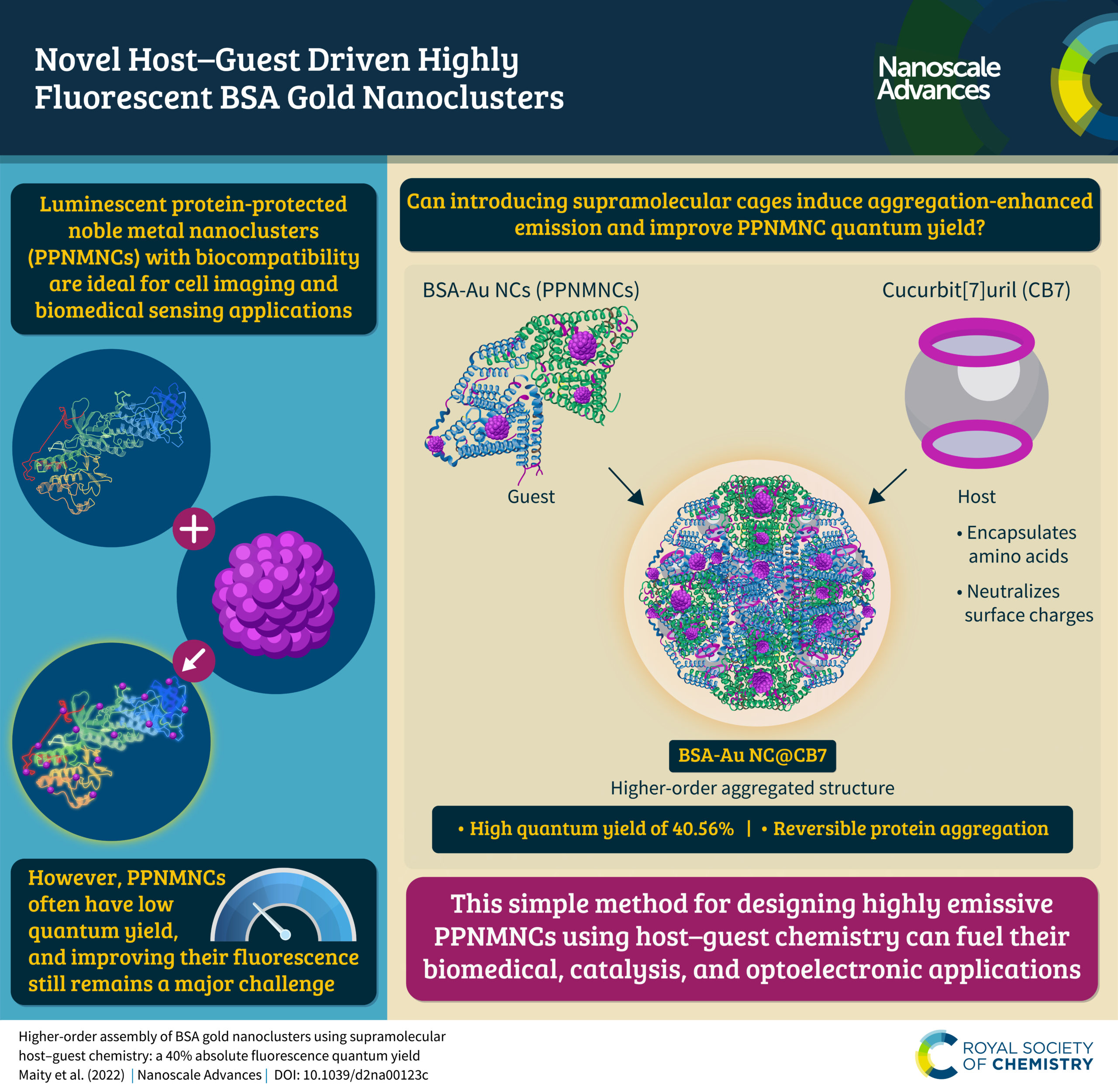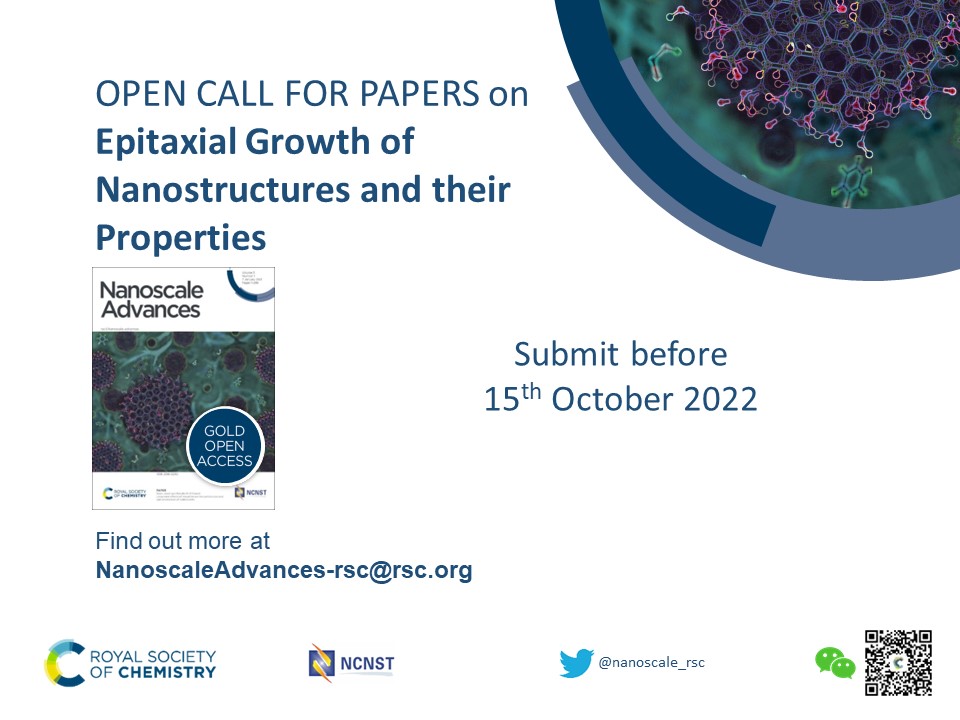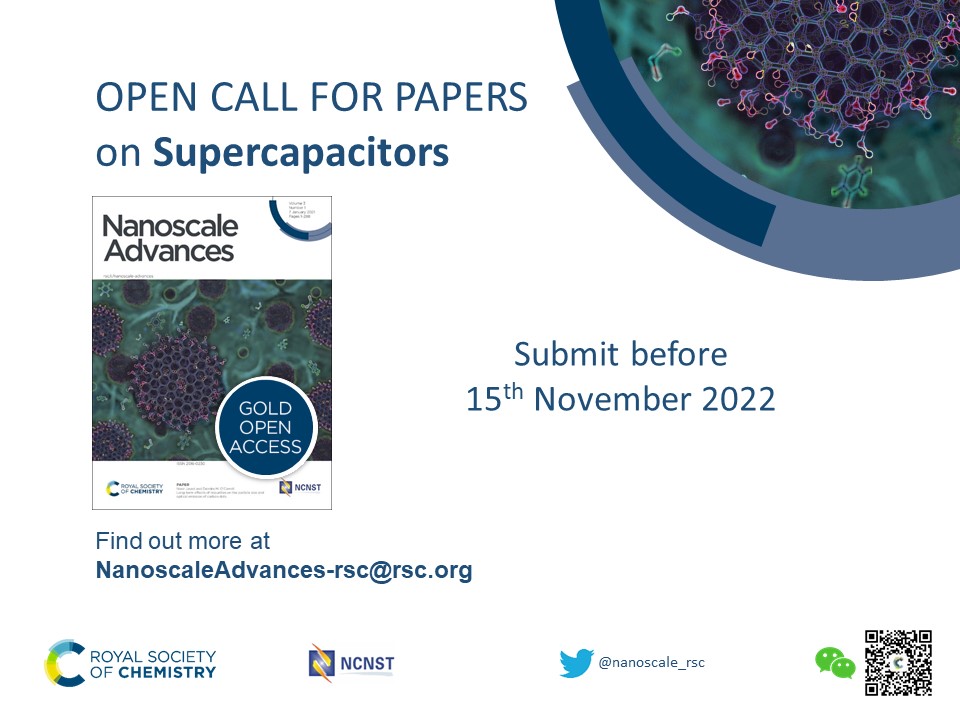We are delighted to announce an open call for papers to our new themed collection on Synthesis, physical properties and applications of advanced nanocrystalline materials.
Loosely connected to the Spring E-MRS 2024 Symposium by the same name (more information here) the following topics are welcome:
- Magnetic, Luminescent, Electrical, and Structural Properties of Nanoparticles
- Synthesis and Characterization of Nanocrystals
- Magnetic Nanoparticles
- Semiconductor Nanocrystals
- Nanocrystalline Metals
- Two-dimensional Nanostructures Such as Graphene, MXene, etc.
- Biomedical applications of Nanoparticles
- Nanocrystalline Material-based Sensors, Actuators, and Other Devices
- Theory and Simulation of Nanocrystalline Materials
- Nanocrystal Thin Films and Their Applications
- Advanced Nanocrystalline Materials for Environmental Applications
- Advanced Nanocrystalline Materials for Energy Applications
This collection welcomes fundamental and applied works including process-structure-property relationships of advanced nanocrystalline materials exhibiting efficient magnetic, luminescent, optical, electrical, dielectric, thermoelectric, piezoelectric and other physical characteristics.
Submit before 1st December 2024.
If you are interested in contributing to this collection, please get in touch with the Editorial Office. Submissions are welcome to both Nanoscale and Nanoscale Advances.
Please note that article processing charges apply to all articles submitted to Nanoscale Advances if, following peer-review, they are accepted for publication, unless your institute has an existing agreement with the RSC that covers publications in our gold open access journals. Details of the APC and discounted rates can be found here. Corresponding authors who are not already members of the Royal Society of Chemistry are entitled to one year’s Affiliate membership as part of their APC. Find out more about our member benefits. There are no costs associated with submitting to Nanoscale unless you wish to publish under an open access license.
This themed collection is Guest Edited by:
 |
Aurora Rizzo
University of Salento – CNR NANOTEC, Italy ORCID: 0000-0002-4570-7777 Aurora received a Ph.D. degree in innovative materials and technologies from National Nanotechnology Laboratory (NNL), Università del Salento, CNR-INFM, Lecce. In the period 2008−2009, she joined the group of Prof. Olle Inganäs at the University of Linköping (Sweden), working on “Bio-Organic Light Emitting Diodes.” She is currently a researcher at the Nanotechnology Institute of the National Research Council (CNR), Lecce, Italy. Aurora Rizzo research interests include the design and developed of innovative hybrid inorganic–organic and 2D materials, such as metal halide perovskites, colloidal nanocrystals, and transition metal dichalcogenides for third generation solar cells, optic and optoelectronic devices. |
 |
Ermelinda M. S. Macoas
University of Lisbon, Portugal ORCID: 0000-0001-8506-7025 Ermelinda received her PhD in Chemistry in 2005, in the field of physical-chemistry, by the University of Coimbra. She then took on a post-doc fellowship at the Department of Chemistry of the University of Coimbra (2008) and a Marie-Curie fellow at the University of Jyväskylä (2006-2007, Finland). Since 2009, she has been a senior researcher at the Instituto Superior Técnico of the University of Lisbon. As a young researcher she received the scientific investigation stimulus prize of the Gulbenkian Foundation (2005). Her research field is in fundamental photochemistry and photophysics with special relevance to practical aspects of energy and charge transfer processes, such as: selective photochemistry connected to isomerization and molecular photocontrol issues, nonlinear fluorescent molecular materials tailored for applications as dyes in bioimaging, FRET based 3D-data storage media, photophysics and photoconductivity of molecular single crystals and single crystal interfaces with applications in solar energy conversion and organic electronics, intramolecular proton tunneling and excited state dynamics of organic molecules and metal complexes. The tools used to address these topics are steady-state and time resolved optical spectroscopy (including UV-Vis, NIR and mid-IR; from fs to microseconds), fluorescence microscopy and electronic structure calculations. |
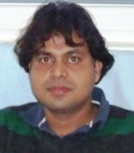 |
Raghvendra Singh Yadav
Tomas Bata University in Zlin, Czech Republic ORCID: 0000-0003-1773-3596 Dr. Raghvendra Singh Yadav is a Senior Scientist at Tomas Bata University in Zlin. He has published more than 74 publications in reputed international journals, as well as six books and two book chapters in the field of materials science and nanotechnology. Dr.Yadav has been also involved as Editorial Board Member in several journals, namely Crystals, International Journal of Molecular Sciences, Nanomaterials, Frontiers in Materials. His research activities are focused on ‘‘Lightweight, Flexible, Low-dimensional Electromagnetic Functional Nanocomposite Materials (MXene, MBene, Graphene, magnetic nanoparticles as nanofillers in a polymer matrix) and its Applications’’ |
 |
Renjie Chen
Beijing Institute of Technology, P. R. China ORCID: 0000-0002-7001-2926 Renjie Chen is a Professor in the School of Materials Science and Engineering at Beijing Institute of Technology (BIT). His research focuses on electrochemical energy storage and conversion technology. He was a post-doctoral fellow in Department of Chemistry at Tsinghua University and a visiting professor in Department of Materials Science and Metallurgy at University of Cambridge. As the principal investigator, Prof. Chen successfully hosted the National Key Research and Development Program of China, the National Natural Science Foundation of China, National High Tech 863 project etc. He has (co-) authored more than 200 research papers and filed 50 patents and patent applications. |
 |
Tayebeh Ameri
University of Kiel, Germany ORCID: 0000-0002-8928-3697 Tayebeh Ameri conducted her Ph.D. research on printed tandem organic photovoltaics at Konarka GmbH Austria and received her Ph.D. degree in Engineering Science from Johannes Kepler University Linz in 2010. Afterwards, she conducted her postdoctoral and Habilitation research, where she pioneered the development of ternary organic and hybrid photovoltaics at the Institute of Materials for Electronics and Energy Technology (i-MEET), Department of Material Science and Engineering at the University of Erlangen-Nürnberg (FAU). From 2018 to 2020, Ameri served as a team leader and lecturer (Privatdozent) in the Department of Physical Chemistry at the University of Munich (LMU). From December 2020 to July 2023, Ameri worked as a Senior Lecturer (Associate Professor) in the Institute for Materials and Processes, Chemical Engineering discipline at the University of Edinburgh. During this period, her research focused on the development of emerging energy harvesting, energy storage, and detection/sensing technologies, including photovoltaics, supercapacitors, and photo-/IR-detectors. Since September 2023, Ameri has been a full Heisenberg professor and holds the Chair for Composite Materials in the Faculty of Engineering, Department of Materials Science at Kiel University. She has the honor of furthering her research as an honorary lecturer at the University of Edinburgh. Ameri is also the co-founder and scientific mentor of the start-up SERINO, founded by the Medical Valley Award in 2021 and expanded by EXIST grant in 2023 to develop the next generation of IR-detectors for food and medical applications. |













